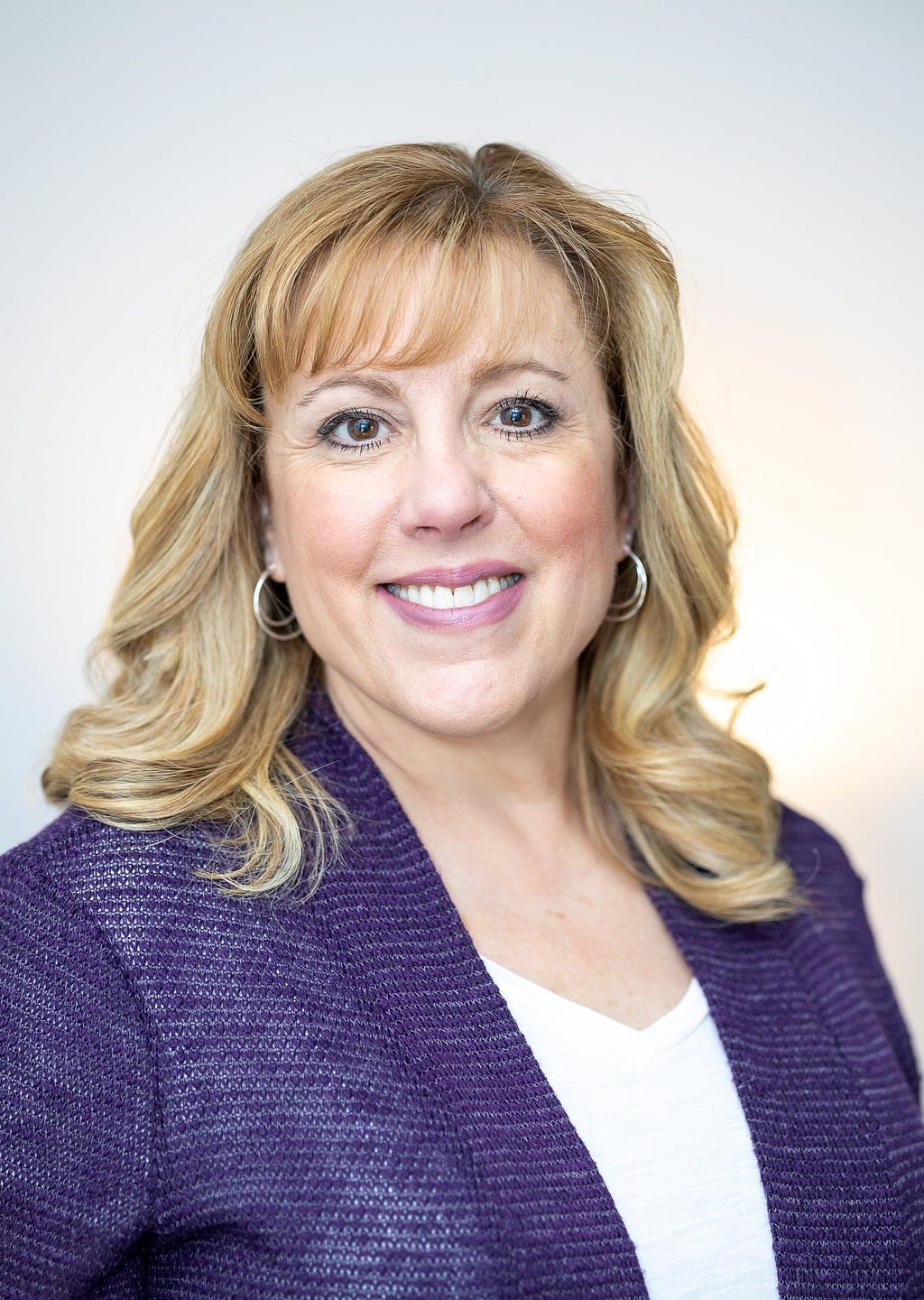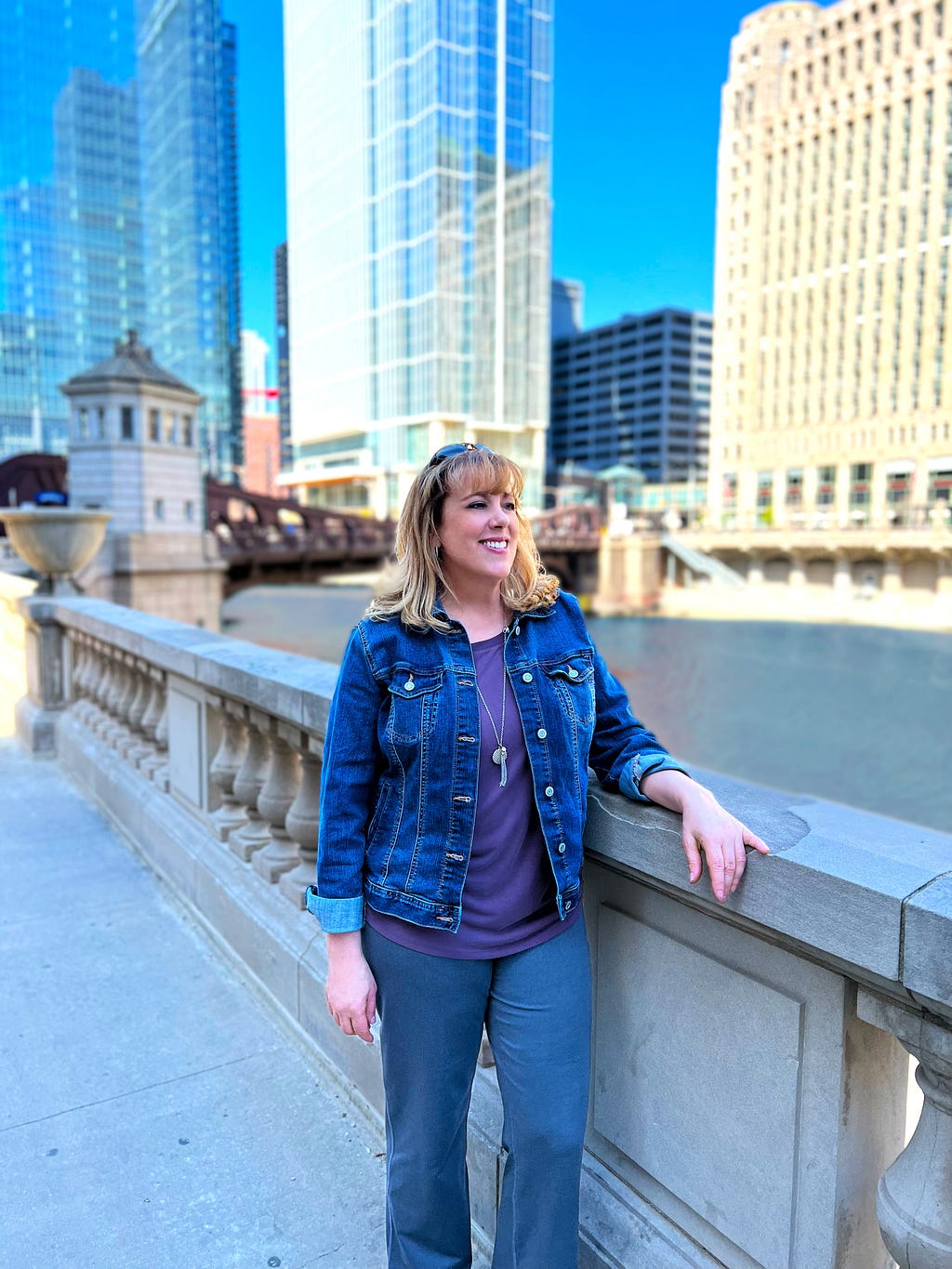Thriving As An Introvert: Robin Kulesza of Paths to Growth Counseling On How Introverts Can Thrive & Succeed In A Society That Seems To Favor Extroverts

Figure out what you’re passionate about and become an expert in at least one of those subjects. Once I figured out how much being a therapist fit my personality, learning became easy and extremely interesting. If you’re learning things that just bore you, it might be time to make a shift.
In a world that often rewards outspokenness and social networking, introverts can sometimes feel sidelined or overlooked. The workplace, educational institutions, and even social settings can often seem engineered to suit the strengths of extroverts, leaving introverts searching for a space to flourish.
However, introversion comes with its own set of unique strengths — deep thinking, the ability to focus, empathy, and keen observational skills — that are invaluable but often underestimated. The question then becomes: how can introverts not only survive but also thrive and succeed in environments that seem skewed towards extroversion? In this interview series, we are talking to introverts, business leaders, psychologists, authors, career coaches, organizational leaders, and other experts in the field who can talk about “How Introverts Can Thrive & Succeed In A Society That Seems To Favor Extroverts”. As part of this series, we had the pleasure of interviewing Robin Kulesza, LCPC.
This former career military officer and pilot turned mental health counselor explains how she found her calling as an introverted healer. Robin is a Licensed Clinical Professional Counselor (LCPC) and owner of Paths to Growth Counseling based in the Chicago, Illinois area. Her goal is to bring healing to midlife adults with undiagnosed and untreated PTSD and past trauma through Eye Movement Desensitization and Reprocessing (EMDR) therapy.
Thank you so much for your time! I know that you are a very busy person. Our readers would love to “get to know you” a bit better. Can you tell us your “Origin Story”? Can you tell us the story of how you grew up?
Most of my childhood memories are of times spent with a large extended family in the Midwest, especially during the summers and holidays. These were happy times and I’m fortunate to have had a pretty simple and uneventful childhood. What really opened my mind to the world was reading and dreaming of going places and seeing new things. If it wasn’t fiction, I was reading National Geographic Magazine. My innate curious nature led to making declarations to my parents such as “I’m a vegetarian now,” “I’m going to learn to fly,” “I’m going to spend the summer canoeing in Minnesota,” and “I’m going to be an Air Force pilot.” They would share with you today that “It’s always a new surprise with her.” They would also share that I couldn’t wait to leave home after high school. I still feel kind of bad about that.
A need for adventure and an internal motivation led me to the military where I could serve but also see the world. I still had thoughts of going into the social services in the back of my mind. As I approached 20 years of service in the military and saw my children grow up, I knew it was time to get back to my other love which is helping people and being curious about how they tick. That led me to my second chapter, which was studying professional counseling and becoming a trauma therapist.
Can you tell us a bit about what you do professionally, and what brought you to this specific career path?
I’m a licensed counselor and work with clients in Illinois, Texas, and Florida. Due to changes with telehealth during COVID, providers like me have benefited by offering online services. Clients have also benefited since they don’t need to live geographically close to specialists to treat their mental health issues. I enjoy working with adults in my phase of life, which is midlife, or a time of many changes and transitions. I don’t see many health providers specializing in this phase of life, so I saw an opportunity to share what I’ve learned over 30 years in the professional world and in navigating life issues with family and relationships.
By midlife, most adults have had relationship challenges, might have been divorced and remarried, been a single parent, or had to face health crises, grief, caregiving to parents, career changes, and other situations. The life skills and experiences in this group are amazing and I’m constantly intrigued by the types of people I get to work with and their unique life stories. As a counselor, I’ve learned however, that life experience goes hand in hand with trauma in different forms. Histories of sexual assault, family dysfunction, emotional abuse, or terrifying experiences are common. What’s uncommon is hearing clients of my generation report getting any kind of mental health treatment when young. We were often told to keep things to ourselves or to toughen up.
Thank you for all that. Let’s now turn to the main focus of our discussion about Thriving As An Introvert. In order to make sure that we are all on the same page, let’s begin with a simple definition. What does “Introvert” mean to you?
The first quality that comes to mind is one of my great loves, spending time alone. Don’t feel bad for me! As much as I enjoy talking with and getting to know people, I find that I need alone time to re-energize. Alone time also gives me the “brain space” to consider decisions, work on goals, and to keep learning new things. Like me, most introverts seem to prefer socializing one on one or in small groups instead of in a crowd.
Can you help articulate a few of the challenges that come with being an introvert?
I often hear self-avowed introverts sharing this fact about themselves as if it’s an apology for being unworthy in some way. I’m not sure where we learned along the way that being extroverted is a life goal. Maybe it goes back to the childhood messages we received, such as “Make sure to say hello to all of your relatives” or “Speak up” or “What’s wrong with Robbie, he never talks to us?” Parents mean well in most cases, but these types of comments lead us to believe we are less than or flawed in some way if we seem shy or quiet.
I’m sure that being an introvert also gives you certain advantages. Can you tell us a few advantages that introverts have?
I’ve always been amazed, from a very young age, by the things people tell each other in confidence, but loudly, not realizing introverts like me can hear and analyze everything they’re saying! Being a good listener and keen observer comes pretty naturally for many introverts. Observation helps me to see issues and problems in what my clients tell me when it isn’t clear to them. Not only do introverts listen, but they are likely forming opinions and analyzing way before they even speak.
What are the “myths” that you would like to dispel about being an introvert? Can you explain what you mean?
First of all, introverts are not boring! I can’t explain how on one hand I love alone time, but on the other get a thrill going on adventures and seeing other people participating with me. I would suggest to readers that they give introverts a chance. Just because they might not rush up to greet you or share their deepest secrets at first, doesn’t mean they aren’t extremely interesting people and loyal friends.
Do you have any role models who are also introverts? What have you learned from them that can help introverts navigate the challenges and benefits of introversion?
Instead of just one person, being surrounded by many introverts in the mental health profession has been rewarding. It might take a while for these individuals in a group to speak up, but it’s always going to be something so thoughtful, compassionate, and profound.

Here is the primary question of our discussion. Based on your experience and success, what are the “Five Things Introverts Need To Thrive & Succeed In A Society That Seems To Favor Extroverts”? If you can, please share a story or an example for each.
1 . Figure out what you’re passionate about and become an expert in at least one of those subjects. Once I figured out how much being a therapist fit my personality, learning became easy and extremely interesting. If you’re learning things that just bore you, it might be time to make a shift.
2 . Don’t play it safe all of the time, because you will miss out on life changing experiences and meeting amazing people. Thank you to my friends, mentors, and teachers who challenged me to stretch myself. I enjoyed rock climbing, leading others, and flying those aircraft in loops! I don’t regret any of those amazing experiences.
3 . Though you enjoy time alone, put a limit on this in order to spend time in activities involving other people. Human beings are meant to spend time with each other, and without others, feelings of depression can set in. Unfortunately, during the pandemic, we saw how difficult it was being removed from human contact.
4 . It’s OK to be an introvert, but develop your talents in different settings such as the workplace. Practicing skills such as public speaking, leading a team, and asking questions in meetings can be learned and will open doors for you in the career arena. Social skills also lead to the ability to make new friends and to find a partner. I’ve often been told after giving a briefing or presentation that I sounded so calm and confident. Little did they know the strength it took to push myself to get the job done in those moments.
5. Just as you don’t want to be judged for your introverted personality, learn to see the benefits of your extroverted friends and family. I admire people that I see every day who easily make friends, small talk at the store, and are happy to share their opinions with anyone that will listen. It’s refreshing and interesting to an introvert. These extroverts are also going to the be the people in your life that get you to act and take rewarding risks.
How should an introvert navigate social relationships and networking, activities that are often touted as extroverts’ forte? Do you have any advice for introverts in these areas?
All the book knowledge in the world won’t help if you don’t get out there and nudge yourself to socialize and get to know people around you. As a teen I had a best friend who constantly challenged me and without her, I would have missed out on so many fun experiences. So, be around people who challenge you and interest you.
What are some practical tips you can offer to introverts who want to succeed in the workplace, which is often geared towards extroverted behaviors?
What you have that extroverts might not have is the time to think and plan. Learn everything you can about a subject that interests you. You don’t have to be the loudest speaker in the room, but eventually you will be recognized for being the trusted expert in what you do well.
Have you noticed any specific ways that being an introvert affects mental health or overall well-being? Any tips for introverts to maintain good mental health?
From my own experience as a trauma therapist, I’ve learned the importance of self-care. If quiet and time alone re-energizes you, then it needs to be part of your daily self-care. I think also that taking some chances and risks can be helpful in experiencing life, so over thinking might be an adaption you want to limit.
In your opinion, are societal views on introversion changing? If so, how do you think this impacts introverts positively or negatively? Can you please explain what you mean?
I saw a shift in my own teens and 20s as the so-called brainy kids were starting to make it big in the computer world. I don’t think it’s as important today to be the loudest and most popular kid on campus. We’re learning that intelligent but soft-spoken individuals can make great strides in helping our society. I still think more learning can take place around how we’re all unique in our own way. When I see parents pushing their shy children to speak to strangers or want them involved in so many activities, I feel concerned that children aren’t learning to build self-esteem and to spend quality time alone being creative and curious.
Can you please give us your favorite “Life Lesson Quote”? Can you share how that was relevant to you in your life?
“Even if you’ve accumulated a house full of nice things and the picture of your life fits inside a beautiful frame, if you have experienced trauma but haven’t excavated it, the wounded parts of you will affect everything you’ve managed to build.” Oprah Winfrey
Growing up in Chicago, I was a huge fan of the Oprah Winfrey Show. There really isn’t anything she can say that I wouldn’t follow up without a big hug! Her transparency about her difficult childhood really spoke to me as someone working with abused children in foster care for many years. This quote gives me hope in the work that I do, that there are people out there hurting, and that I can help in some way.
You are a person of great influence. If you could start a movement that would bring the most amount of good to the most amount of people, what would that be? You never know what your idea can trigger. 🙂
If society could see the value in better funding for social services and educating youth about mental health, we might be able to prevent many tragedies such as youth suicide. Childhood lessons in ways to cope with stress, build self-esteem, and keep safe from predators, are ways to save more people from the life-altering effects of abuse, neglect, and trauma.
How can our readers further follow your work online?
I’m actively engaged on Instagram and Facebook under my business name and enjoy educating followers on mental health issues, in particular midlife, trauma, and EMDR therapy. I would love to hear from you there.
Thank you so much for sharing these important insights. We wish you continued success and good health!
Thriving As An Introvert: Robin Kulesza of Paths to Growth Counseling On How Introverts Can Thrive… was originally published in Authority Magazine on Medium, where people are continuing the conversation by highlighting and responding to this story.
